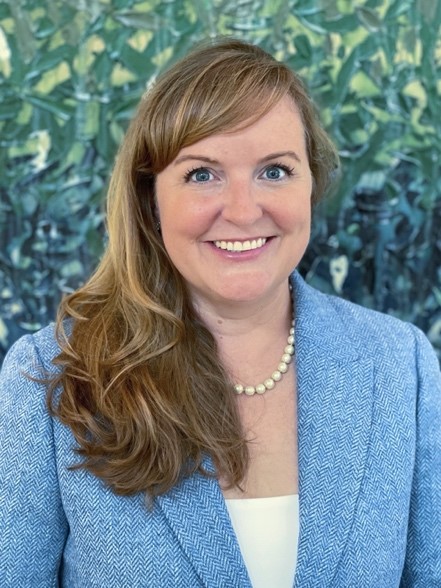Today, we’ll take you through our conversation with Dr. Sarah Powell, associate professor at the University of Texas at Austin. Dr. Powell’s project, Math SPIRAL: Specialized Intervention to Reach All Learners, evaluates an educator-provided mathematics intervention for students in grades 4 and 5. We hope you enjoy this conversation as much as we did!
*Responses have been edited for brevity and clarity.
National Center for Special Education Research (NCSER): How would you describe your research project in a sentence?

Dr. Sarah Powell: We work collaboratively with teachers and support them, through professional development, in providing math tutoring to students in grades 4 and 5.
NCSER: What was the need that inspired you to conduct this research?
Dr. Sarah Powell: There are too many students who are not meeting minimum levels of math proficiency, and the state of Texas passed legislation to help these students by requiring that they receive small-group instruction. Our project provides support to the teachers who do this small-group instruction and tests the impact of this support on student math outcomes.
NCSER: What outcomes do you expect to change with this research?
Dr. Sarah Powell: We expect teacher instructional practices to improve, especially around the use of evidence-based practices to teach math. We would also expect student math outcomes to improve when those students receive tutoring from the teachers in our project.
NCSER: What inspired you to do research in special education?
Dr. Sarah Powell: In middle school, I struggled with math and received poor math grades. In ninth grade, I had a math teacher who explained math in a way that helped me understand. As I spent time in schools as a teacher, I saw other students struggle with math like I did. When I learned how research can help improve math outcomes for students, I was in!
NCSER: Why is this particular research project important to you?
Dr. Sarah Powell: Prior to this project, most of my research was on intervention design and the testing of those interventions. It was very focused on the student. With SPIRAL, we are working with teachers and trying to improve teaching practices without a specific curriculum in place.
NCSER: How do you think this grant will impact special education?
Dr. Sarah Powell: This grant has the opportunity to impact what we know about best practice for providing math professional learning and coaching to math teachers. This grant also has the potential to determine if student math outcomes can improve when teachers participate in collaborative learning about best practices for the teaching and learning of math. Researchers may also learn more about conducting studies using regression discontinuity design in schools.
NCSER: How will this project address challenges related to the pandemic?
Dr. Sarah Powell: In Texas, the majority of students, including students with disabilities, did not meet minimum levels of math proficiency in 2021. This project addresses a challenge that more students than usual are experiencing difficulty with math, and many math teachers are providing small-group instruction who have not provided such support before.
“Children with or at risk for disabilities start to enjoy math when they start to see small successes with their learning. Math can be for all!”
NCSER: What are some of the biggest challenges in special education research today?
Dr. Sarah Powell: Collaborating with school partners has become more difficult when schools have more and more students who experience difficulty with reading and math. Many schools feel overwhelmed, so finding the time to collaborate with researchers is not necessarily a priority.
NCSER: What’s one thing you wish more people knew about children and youth with or at risk for disabilities?
Dr. Sarah Powell: Children with or at risk for disabilities start to enjoy math when they start to see small successes with their learning. Math can be for all!
NCSER: What are some of the most exciting news/innovations/stories that give you hope for the future of special education research?
Dr. Sarah Powell: I am enthralled in all the conversations about the “science of reading” and the recognition that many schools have been teaching reading according to beliefs instead of evidence. The math story is the same–and I am hopeful we can start to focus on the teaching and learning of math in order to improve math outcomes for all students.
NCSER: What are some of the future goals for you and your team?
Dr. Sarah Powell: Continue to develop strong partnerships with our local school districts and continue to respond to their needs–SPIRAL is an example of that. We all work hard and want to continue to improve the math outcomes of students and ensure all students have access to evidence-based math instruction.
Thank you for reading our conversation with Dr. Sarah Powell! Come back tomorrow for our next grantee spotlight!